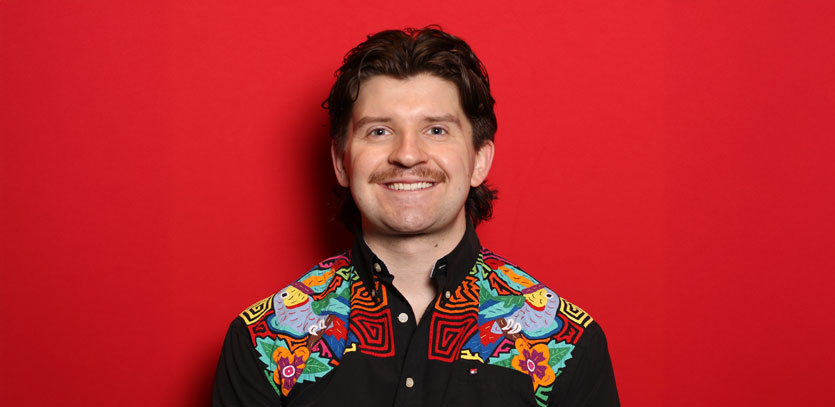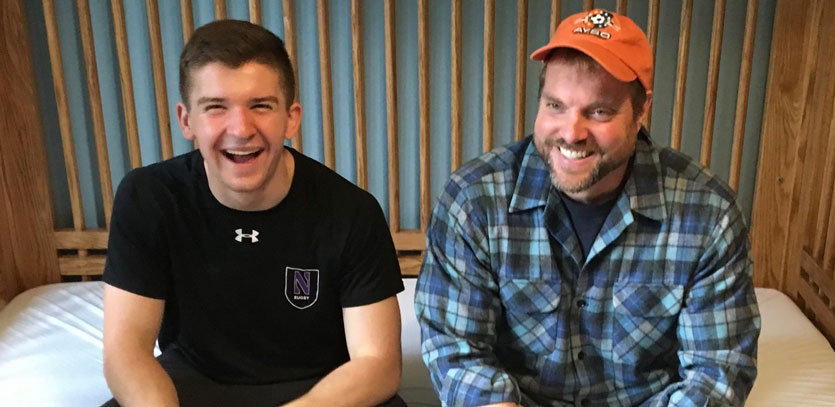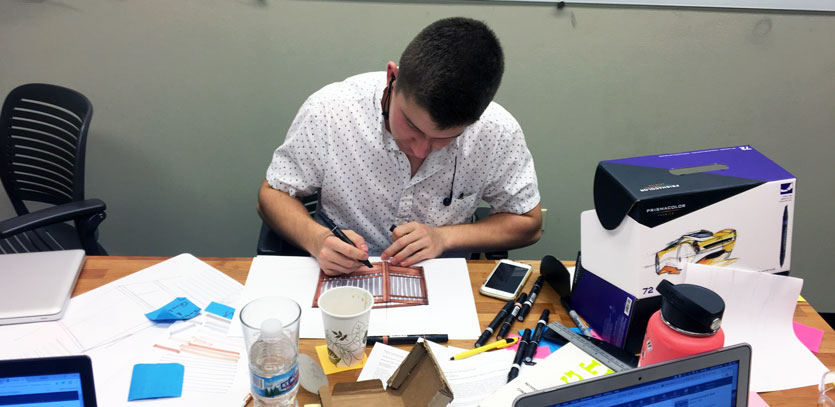Built by Braun
After finding a passion for design at Northwestern’s Segal Design Institute, MaDE alum Christian Braun now applies his human-centered design skills and frameworks to his work at Milwaukee Tool.
While Christian Braun (’20) arrived at Northwestern University in 2017 with a bubbling interest in design, it didn’t take long for the attraction to intensify.
Immediately enrolled in Design Thinking and Communication – the two-quarter course required of all first-year Northwestern Engineering students, Braun encountered a unique problem: a local family needed a safe, defined sleeping environment for their child with Williams Syndrome, a rare condition marked by difficulty navigating visual-spatial tasks. The young boy had outgrown his existing crib and purchasing a new bed befitting his needs ran upwards of $12,000.
Applying the human-centered design process for the first time, Braun teamed with classmates to interview the boy’s parents and therapists, observe his bedtime routine, and brainstorm potential solutions. For Braun, who has volunteered with special needs individuals since his high school years, the assignment proved particularly meaningful and fueled movement.
“Hearing the family’s concerns, you want to create something that works and provides the safety and peace of mind they need,” Braun said.
The following summer, as a Segal Design Institute intern, Braun and a team of fellow interns pushed the safety bed project to completion. They accepted stakeholder feedback and input from industry experts, created detailed CAD models, and tested various options before building their finalized design in Segal’s Prototyping and Fabrication Lab.
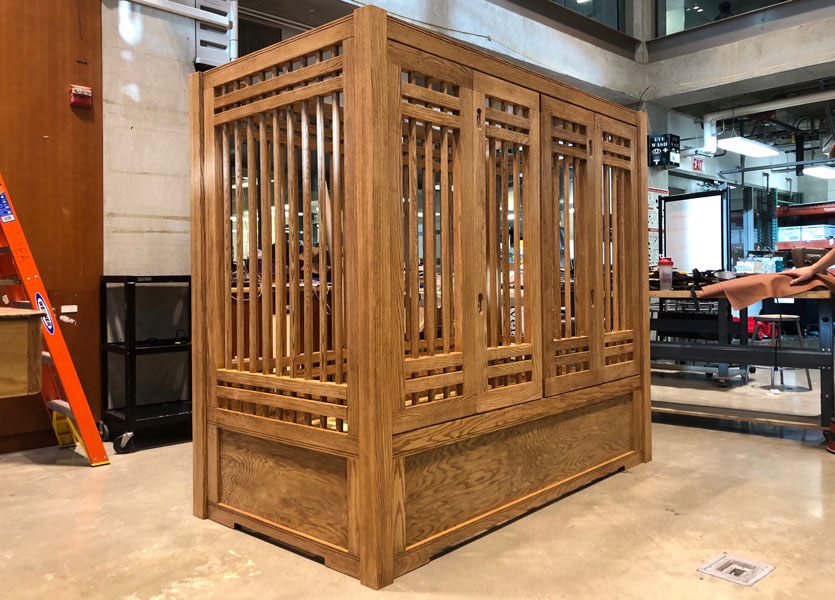
At summer’s end, Braun and his intern teammates ventured to the family’s suburban home, where they installed the Prairie Style bed inside the boy’s bedroom. Constructed of sturdy red oak, the bed featured bifold doors with ergonomic, two-handed locks and 54-inch walls – an elegant, durable solution blending function, safety, and style.
“The gratitude and appreciation the parents showed stuck with me,” Braun said. “Seeing how the design process could really influence people, I knew this was the world for me.”
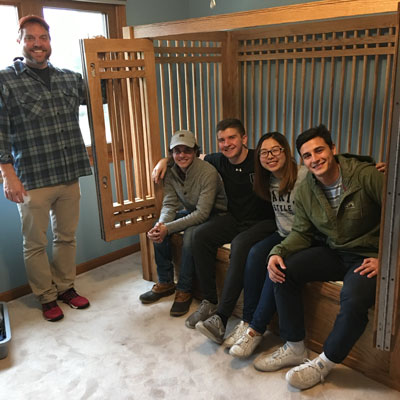 Determined to sharpen his ability to turn ambiguous problems into relevant and refined solutions, Braun traded his pursuit of a mechanical engineering degree for a spot in Segal’s Manufacturing and Design Engineering (MaDE) program. He strengthened his grasp of human-centered design through classes and projects while also serving as a design coach in courses led by Segal instructors Greg Holderfield and Michael Beltran.
Determined to sharpen his ability to turn ambiguous problems into relevant and refined solutions, Braun traded his pursuit of a mechanical engineering degree for a spot in Segal’s Manufacturing and Design Engineering (MaDE) program. He strengthened his grasp of human-centered design through classes and projects while also serving as a design coach in courses led by Segal instructors Greg Holderfield and Michael Beltran.
“There’s something inherently exciting about establishing empathy for individuals and using design as a way to have a direct impact on improving their experiences,” Braun said.
MaDE program director David Gatchell uses words like “confident” and “undaunted” to describe Braun.
“Christian was not intimidated by any of the coursework and was always on the lookout for courses that would challenge him,” Gatchell said.
Since earning his MaDE degree in 2020, Braun has continued honing his human-centered design skills with Milwaukee Tool, the Wisconsin-based company with a 100-year history of designing and developing innovative solutions for the professional construction trades.
In his first project for Milwaukee Tool, Braun helped develop the BOLT™ Eye Visor, an adjustable, protective eyewear accessory for the brand’s BOLT™ helmets and hard hats worn on construction jobsites around the globe.

Today, he serves as an associate project leader for front-end innovation, tasked to propel Milwaukee Tool’s overall business strategy and its product development pipeline by pursuing breakthrough innovations, breathing new life into existing products, and assessing new markets. He’s constantly working to deliver clarity, whether that means providing new product roadmap opportunities or exploring a wider range of features on solutions in Milwaukee Tool’s existing product catalog.
“We’re always looking at new problems, interviewing users, and creatively exploring how we can address their needs,” Braun said. “For me, it’s incredibly exciting because I love immersing myself in an ambiguous problem and generating solutions.”

